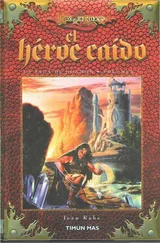John Steinbeck - Cannery Row
Здесь есть возможность читать онлайн «John Steinbeck - Cannery Row» весь текст электронной книги совершенно бесплатно (целиком полную версию без сокращений). В некоторых случаях можно слушать аудио, скачать через торрент в формате fb2 и присутствует краткое содержание. Жанр: Современная проза, на английском языке. Описание произведения, (предисловие) а так же отзывы посетителей доступны на портале библиотеки ЛибКат.
- Название:Cannery Row
- Автор:
- Жанр:
- Год:неизвестен
- ISBN:нет данных
- Рейтинг книги:3 / 5. Голосов: 1
-
Избранное:Добавить в избранное
- Отзывы:
-
Ваша оценка:
- 60
- 1
- 2
- 3
- 4
- 5
Cannery Row: краткое содержание, описание и аннотация
Предлагаем к чтению аннотацию, описание, краткое содержание или предисловие (зависит от того, что написал сам автор книги «Cannery Row»). Если вы не нашли необходимую информацию о книге — напишите в комментариях, мы постараемся отыскать её.
Cannery Row — читать онлайн бесплатно полную книгу (весь текст) целиком
Ниже представлен текст книги, разбитый по страницам. Система сохранения места последней прочитанной страницы, позволяет с удобством читать онлайн бесплатно книгу «Cannery Row», без необходимости каждый раз заново искать на чём Вы остановились. Поставьте закладку, и сможете в любой момент перейти на страницу, на которой закончили чтение.
Интервал:
Закладка:
Mack and the boys knew that, but Mack said. “Where we going to get a big cake? Lee hasn’t got nothing but them little bakery cakes.”
Hughie had been so successful before he tried again. “Why’n’t Eddie bake a cake?” he suggested. “Eddie used to be fry cook at the San Carlos for a while.”
The instant enthusiasm for the idea drove from Eddie’s brain the admission that he had never baked a cake.
Mack put it on a sentimental basis besides. “It would mean more to Doc,” he said. “It wouldn’t be like no God damned old soggy bought cake. It would have some heart in it.”
As the afternoon and the whiskey went down the enthusiasm rose. There were endless trips to Lee Chong’s. The frogs were gone from one sack and Lee’s packing case was getting crowded. By six o’clock they had finished the gallon of whiskey and were buying half pints of Old Tennis Shoes at fifteen frogs a crack, but the pile of decorating materials was heaped on the floor of the Palace Flophouse — miles of crepe paper commemorating every holiday in vogue and some that had been abandoned.
Eddie watched his stove like a mother hen. He was baking a cake in the wash basin. The recipe was guaranteed not to fail by the company which made the shortening. But from the first the cake had acted strangely. When the batter was completed it writhed and panted as though animals were squirming and crawling inside it. Once in the oven it put up a bubble like a baseball which grew tight and shiny and then collapsed with a hissing sound. This left such a crater that Eddie made a new batch of batter and filled in the hole. And now the cake was behaving very curiously for while the bottom was burning and sending out a black smoke the top was rising and falling glueyly with a series of little explosions.
When Eddie finally put it out to cool, it looked like one of Bel Geddes’ miniatures of a battlefield on a lava bed.
This cake was not fortunate, for while the boys were decorating the laboratory Darling ate what she could of it, was sick in it, and finally curled up in its still warm dough and went to sleep.
But Mack and the boys had taken the crepe paper, the masks, the broomsticks and paper pumpkins, the red, white, and blue bunting, and moved over the lot and across the street to the laboratory. They disposed of the last of the frogs for a quart of Old Tennis Shoes and two gallons of 49-cent wine.
“Doc is very fond of wine,” said Mack. “I think he likes it even better than whiskey.”
Doc never locked the laboratory. He went on the theory that anyone who really wanted to break in could easily do it, that people were essentially honest and that finally, there wasn’t much the average person would want to steal there anyway. The valuable things were books and records, surgical instruments and optical glass and such things that a practical working burglar wouldn’t look at twice. His theory had been sound as far as burglars, snatch thieves, and kleptomaniacs were concerned, but it had been completely ineffective regarding his friends. Books were often “borrowed.” No can of beans ever survived his absence and on several occasions, returning late, he had found guests in his bed.
The boys piled the decorations in the anteroom and then Mack stopped them. “What’s going to make Doc happiest?” he asked.
“The party!” said Hazel.
“No,” said Mack.
“The decorations?” Hughie suggested. He felt responsible for the decorations.
“No,” said Mack, “the frogs. That’s going to make him feel best of all. And maybe by the time he gets here, Lee Chong might be closed and he can’t even see his frogs until tomorrow. No, sir,” Mack cried. “Them frogs ought to be right here, right in the middle of the room with a piece of bunting on it and a sign that says, Welcome Home, Doc.”
The committee which visited Lee met with stern opposition. All sorts of possibilities suggested themselves to his suspicious brain. It was explained that he was going to be at the party so he could watch his property, that no one questioned that they were his. Mack wrote out a paper transferring the frogs to Lee in case there should be any question.
When his protests weakened a little they carried the packing case over to the laboratory, tacked red, white, and blue bunting over it, lettered the big sign with iodine on a card, and they started the decorating from there. They had finished the whiskey by now and they really felt in a party mood. They criss-crossed the crepe paper, and put the pumpkins up. Passers-by in the street joined the party and rushed over to Lee’s to get more to drink. Lee Chong joined the party for a while but his stomach was notoriously weak and he got sick and had to go home. At eleven o’clock they fried the steaks and ate them. Someone digging through the records found an album of Count Basie and the great phonograph roared out. The noise could be heard from the boat works to La Ida. A group of customers from the Bear Flag mistook Western Biological for a rival house and charged up the stairs whooping with joy. They were evicted by the outraged hosts but only after a long, happy, and bloody battle that took out the front door and broke two windows. The crashing of jars was unpleasant. Hazel going through the kitchen to the toilet tipped the frying pan of hot grease on himself and the floor and was badly burned.
At one-thirty a drunk wandered in and passed a remark which was considered insulting to Doc. Mack hit him a clip which is still remembered and discussed. The man rose off his feet, described a small arc, and crashed through the packing case in among the frogs. Someone trying to change a record dropped the tone down and broke the crystal.
No one has studied the psychology of a dying party. It may be raging, howling, boiling, and then a fever sets in and a little silence and then quickly, quiddy it is gone, the guests go home or go to sleep or wander away to some other affair and they leave a dead body.
The lights blazed in the laboratory. The front door hung sideways by one hinge. The floor was littered with broken glass. Phonograph records, some broken, some only nicked, were strewn about. The plates with pieces of steak ends and coagulating grease were on the floor, on top of the bookcases, under the bed. Whiskey glasses lay sadly on their sides. Someone trying to climb the bookcases had pulled out a whole section of books and spilled them in broken-backed confusion on the floor. And it was empty, it was over.
Through the broken end of the packing case a frog hopped and sat feeling the air for danger and then another joined him. They could smell the fine damp cool air coming in the door and in through the broken windows. One of them sat on the fallen card which said “Welcome Home, Doc.” And then the two hopped timidly toward the door.
For quite a while a little river of frogs hopped down the steps, a swirling, moving river. For quite a while Cannery Row crawled with frogs — was overrun with frogs. A taxi which brought a very late customer to the Bear Flag squashed five frogs in the street. But well before dawn they had all gone. Some found the sewer and some worked their way up the hill to the reservoir and some went into culverts and some only hid among the weeds in the vacant lot.
And the lights blazed in the quiet empty laboratory.
Chapter XXI
In the back room of the laboratory the white rats in their cages ran and skittered and squeaked. In the corner of a separate cage a mother rat lay over her litter of blind naked children and let them suckle and the mother stared about nervously and fiercely.
In the rattlesnake cage the snakes lay with their chins resting on their own coils and they stared straight ahead out of their scowling dusty black eyes. In another cage a Gila monster with a skin like a beaded bag reared slowly up and dawed heavily and sluggishly at the wire. The anemones in the aquaria blossomed open, with green and purple tentacles and pale green stomachs. The little sea water pump whirred softly and the needles of driven water hissed into the tanks forcing lines of bubbles under the surface.
Читать дальшеИнтервал:
Закладка:
Похожие книги на «Cannery Row»
Представляем Вашему вниманию похожие книги на «Cannery Row» списком для выбора. Мы отобрали схожую по названию и смыслу литературу в надежде предоставить читателям больше вариантов отыскать новые, интересные, ещё непрочитанные произведения.
Обсуждение, отзывы о книге «Cannery Row» и просто собственные мнения читателей. Оставьте ваши комментарии, напишите, что Вы думаете о произведении, его смысле или главных героях. Укажите что конкретно понравилось, а что нет, и почему Вы так считаете.











